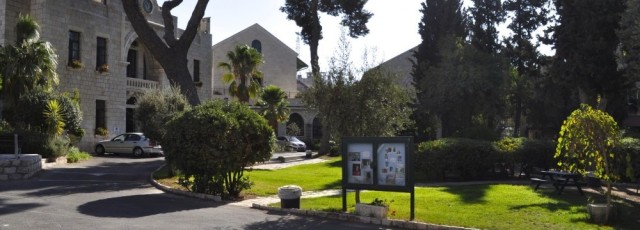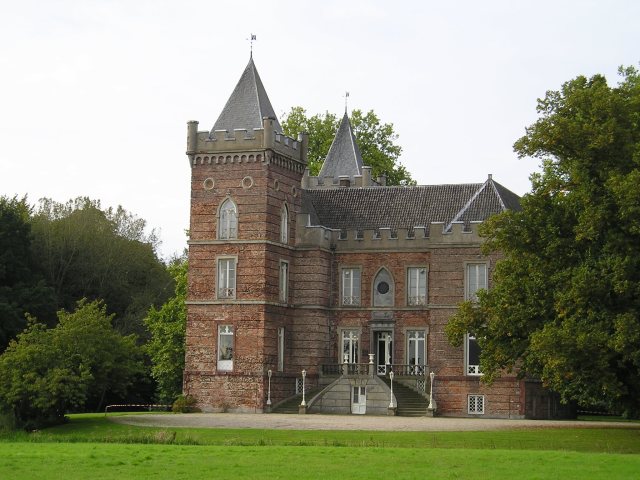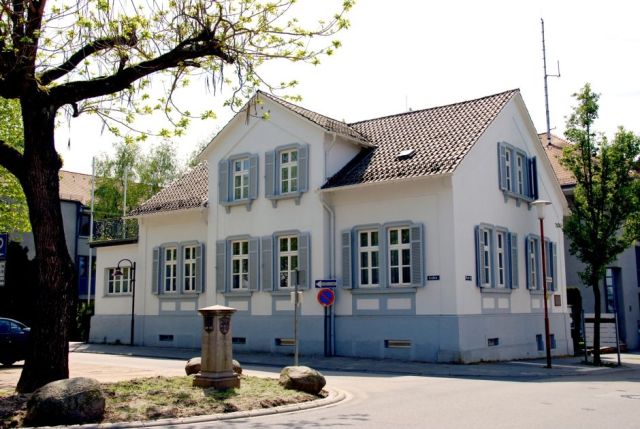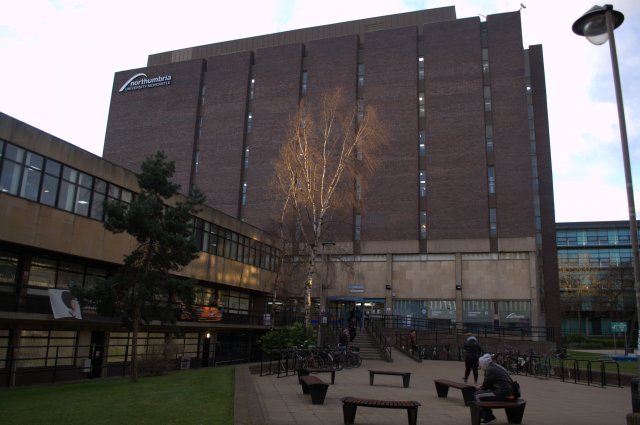A new Mach’ was challenge, set by Die Pö, asks us to do something with libraries… and that I can not ignore! Libraries have always been important to me. They have been my refuge in the past, I fell in love with stories there, I have found true love through them and I have worked in them.
My earliest library memory is of the school library. I loved reading, I was a voracious reader. I was in elementary school in Jerusalem and every Friday at the end of the school day “library class” was scheduled.  It was my absolute fave class of the week, I can’t remember how many books you were allowed to take out but I do know I borrowed the maximum amount each week. I remember other kids not liking going and messing around in the library but as soon as I entered the school library my nose was in the shelves and the books and I was lost to the outside world.
It was my absolute fave class of the week, I can’t remember how many books you were allowed to take out but I do know I borrowed the maximum amount each week. I remember other kids not liking going and messing around in the library but as soon as I entered the school library my nose was in the shelves and the books and I was lost to the outside world.
When I was 10 we moved to Germany and went to live in a village that didn’t have its own library. I went to German school, learned to speak German quickly but longed, absolutely longed, for English language books and for my old school library. We soon started going to an American Episcopalian church in Frankfurt am Main on Sundays, which was situated close to several US army bases (this picture is of the church we went to)…

We made friends there and one man in particular – not quite legally I think – gave us his library card for a nearby American army library. The library was open on Sunday afternoons and every Sunday after church we’d go there for an hour. I loved it there and for me Sundays were not necessarily about going to church but were about going to the library. My most vivid memory was loaning all the Laura Ingalls Wilder books from that library again and again and again… We were able to use the library card for a few years until we were found out. The man who had given us his card tried to put in a good word for us, how we had been model lenders, but no, the card was revoked and I was very depressed about that. We had moved to another, larger, town in the meantime but the library there wasn’t well stocked and certainly not that well stocked in English books. I was library-less for a while and hated that.
Not long after that I was able to win a scholarship for an international school in The Netherlands. I hadn’t been happy in German school and because I had kept up my English through reading (thank you US army library!), writing a diary and also speaking it at home, I was now able to go to this English language international boarding school. At age 16 I was off! The school was situated in a castle, an absolutely beautiful spot, and for the two years I was there I was thankful every day that I could go to such a beautiful school!

Being away from home at 16 and alone at school did take getting used to. I was able to go home to my parents in Germany on holidays and to my aunt in The Netherlands on free weekends but I was miserable for the first 3 months. There was a school library there, which in part became my new refuge, and I loved reading all the English language books I could find there. I also was happy to be speaking English all day and after the initial difficult adjusting period I soon took to my new school life. I loved the independence, I loved the location of the school, I made new friends and I learned to handle many of the over-privileged students there with a certain degree of humour. In the end it turned out to be a very good time I had there!
I finished high school and went on to university in the old town of Leiden. I struggled with what I wanted to study. I first majored in psychology, then in English and at the university I naturally made use of Leiden’s big university library.
What I learned most of all during that time was that an academic course just wasn’t for me. It was too theoretical, I needed something more practical. As I was flunking out of uni because I didn’t like it, I also started avoiding the uni library there and I turned to Leiden’s public library, which was well stocked in (non-academic) English language books…

It also offered me a place to hide away from people, yet again a library had become my refuge. I was in a real funk during those years, no idea what I wanted, where I was going. It was in this library that I started researching what other things I could do with my life, other than becoming a psychologist, an English teacher, a translator or an academic. That gave me the ammunition to talk to my parents and my dad sat down with me and systematically guided me through choices and wishes that I had already been able to prepare. In the end we figured out what I could do for a career: I could become a librarian! I had resisted that idea in the past, my mother was a trained librarian after all and I wanted to be me and not my mother. But librarianship it was and it was a good choice.
The training was very different from what it had been in my mother’s day, especially as we were at the beginning of the digital age; a lot of the training was centered around (digital) information management. It was at that applied sciences uni in Den Haag (situated in these buildings that now aren’t there anymore)…

… where I met a young man who was into archives/museums (whereas I was more into libraries). We did the same course and fell in love and he is now my husband. So, in a way, I owe meeting the love of my life to librarianship!
During my librarianship course I also was able to start my first library job. My dad was General Secretary of an international Jewish-Christian dialogue organization with its head office in Germany and in that office there was a small specialist library. The library specialized on Judaism, Christianity, history relating to both, and Holocaust studies. My mother was the part-time librarian / documentalist there and my older brother (a student of Jewish history) helped out in that library during his vacations. He soon went to the US to continue his studies there and his position became vacant. As I was a librarianship student by then, my dad asked me to follow in my brother’s footsteps. And so during all my vacations I would work in the Martin Buber House library in the town of Heppenheim.

My mom ordered the new books and saved them up for me to organize and catalogue when I got there during vacations. I was also the one who suggested setting up a digital catalogue instead of the card catalogue. After I finished college my boyfriend (now my husband) and I were hired by my dad to set up the digital catalogue, get all the books into the system and set up a digital lending system. It was our first job out of uni, the project lasted about 3 months and was a lot of fun to do. I was especially interested in all the Holocaust study books there and read many of them throughout the years (even before I actually worked there).
During my studies I also used the Dutch National Library in Den Haag a lot…
And I did a 4 month internship in Newcastle Upon Tyne (England) in the library of what used to be Newcastle Polytechnic but is now Northumbria University.

My first library job after we finished that cataloguing job at the Martin Buber House in Germany was at a small library specializing in education in developing countries in The Netherlands. It was situated in the attic of this building…

I couldn’t stay there long (just 6 months) as I was only hired because the regular assistant librarian was on sick leave. That job did lead me to my next job: working in the library of the Dutch Ministry of Foreign Affairs, specializing in development cooperation subjects.

I stayed there for 2.5 years but when they couldn’t offer me a fixed contract, I found another job as head of a graphic design college library…

I did that job for 6 years and I really enjoyed it! But the library was small and soon everything was running so smoothly, it started to get boring. Also, my kids were small and I wanted to work closer to home. I found a job as head of a secretarial/reception department of an advisory organization in my home town and I did that for many years, leaving the librarianship world behind me. I have now moved on to digital information management (which will also be my new job) in which I can still use many of my skills from my librarianship days, but I am not a librarian anymore now.
As for my use of libraries nowadays… I don’t use them anymore! There was a public library very close to where I live, but it closed 3 or 4 years ago…

My town now only has one large (admittedly very nice!) central library left and if I want to go there, I really need to go out of my way. So, I don’t go to a library anymore, I don’t even have a membership anymore… I still wish they hadn’t closed down the library close to me. Even though it wasn’t greatly stocked (most notably, the English language section was far too small), I still liked going there… and there was always the possibility of inter-library loans. I have now found other ways to get the much craved information/books I need but I do miss the physical, calming presence of a library.
Libraries have always been and will always be important to me. I like being in them, I like visiting them when I am on vacation (I adore old libraries in castles!) and they will always hold a special place in my heart.





Seems like you and I have a similar level of library looooove! Although I don’t think I could have been a librarian. I don’t like organizing things, and the one time I worked in a library I was constantly frustrated by being so close to books I had no time to read. Love seeing all of these pictures and reading about your library path.
LikeLiked by 1 person
I think you may love libraries even more than I do. 🙂
I like the aspect of organizing information in such a way that people can more easily find what they need. And I like helping people, so in that sense librarianship was ideal for me. Also, one of my fave librarianship tasks was shopping for new books. I did a lot of that especially at the graphic design college, had a great budget for art books that I loved to spend. Books that I liked I could take home wiith me for a bit, which was an extra bonus. 🙂 If you’d come to my house, however, you’d never think either of us had a background in librarianship – it’s a disorganized mess.
LikeLiked by 2 people
There’s an English / German / Yiddish (maybe also in other languages) saying “Alle Schuhster gehen barfuß” / “shoemaker’s children wear the worst shoes”. 🙂
Almost every librarian I have ever met is way more phlegmatic than I am (I get that sense of you from blog as well). And all of them care more about order than I do. I get the impulse to help people find things; I have that too; but the need to organize things in the first place is a little dark for me. I’d use the principle of superposition if it were left up to me. (Although if I’d written another library post it would have included the earth-shattering realizing that in Göttingen not all books were arranged by subject.)
LikeLike
In depot libraries, where many books are in closed stacks not freely accessible to visitors, a non-subject arrangement can be very normal.
I like thinking about how best to organize the info, but then leave the actual work of doing so to others. 😉
LikeLiked by 1 person
I never encountered that in the US — not saying it’s not here, just that I never encountered it. Every library I used until Göttingen was organized by subject. (UW had two different cataloging systems by subject — LOC and Cutter — depending on when they’d acquired the book.) All the Madison library books that were not rare were in open stacks so there was a point in walking into the stack just because you might run across a neighboring book you’d have missed, and there was a shelf list for rare items. And then at the HAB, big chunks were cataloged by when or how they’d been acquired, so, for instance, if you wanted to see everything they’d gotten from the Gandersheim monastery library you could get them by ordering the signatures consecutively — so it didn’t matter that you couldn’t go into the Magazin because you could still see how they’d been organized in say 1550. It floored me that so much of the Göttingen library was not open stack — but then when they opened their modern stack, which they did to save money in 1996, while I was there, it was like, what? the books are just set up in the order they bought them, not by subject at all. I remember how much that bugged me! (amusingly, that is now how I organize my computer files — as a date stack.) It was also distracting because I kept being confronted with interesting books that begged to be taken along even though I didn’t have time for them.
I did encounter one library rarely late — at Valparaiso University, where I went for a job interview in 2006 — where they kept the books that were not in their open stack in random boxes. A box was open until it filled with books to be stored, then a conveyer belt closed the box and stored it somewhere until needed. The books were tagged magnetically, so the computer supposedly knew in which box any given book was located and could retrieve it for you within five minutes. This seemed really risky to me — an easy way to lose a book forever — but they swore it was the latest, best thing. I think partially because the books rested on their covers rather than on their margins, which I’ve been told is hard on the bindings.
LikeLiked by 1 person
The boxing solution sounds interesting to me, have never seen that. I wonder if they still use it? Would love to see that in action some time.
LikeLike
How sad that your local library closed! But this is a lovely tribute to the institution. I have many memories of checking out books as a child from the school library and the public one. I always felt like I was coming home with treasure 🙂
LikeLiked by 1 person
Yes, I know the feeling!
Also, entering a library always feels like coming home to me, I always feel very comfortable in libraries.
LikeLiked by 1 person
Yes, anywhere you go, it’s a home, full of old favorites 🙂
LikeLiked by 1 person
I always take a quick peek to see whether Austen and Bronte works are present. 🙂
LikeLiked by 1 person
Yes, and I always look to see whether they have my beloved Georgette Heyer. Most libraries in the US do.
LikeLiked by 1 person
I just love libraries ^^
LikeLiked by 1 person
Excellent! 🙂
LikeLiked by 1 person
Thank you for taking us on this trip through the libraries of your past. I actually did not know you were a librarian by trade, and it was really interesting to read how you became a librarian initially, and how the circumstances (and development of the world of work) eventually changed your career.
LikeLiked by 1 person
Step by step the layers of Esther are peeled away, revealing more about me. 🙂 Glad you enjoyed it.
LikeLiked by 1 person
That’s exactly what I like!
LikeLiked by 1 person
What an interesting read about your connection to the various libraries in your past! The Martin Buber House library is a really cute building.
LikeLiked by 1 person
Thanks. 🙂
Martin Buber was a well-known Jewish philosopher: https://en.wikipedia.org/wiki/Martin_Buber.
He lived in Germany and in 1938 went to Israel when living in Nazi Germany became too difficult. That house that I worked in is the house he actually lived in before the war! The corner windows on the ground floor on the right were my dad’s office. The library was situated on the first floor above his office. I’m actually not sure whether the library is even still there. I should go back some time and check it out!
LikeLiked by 2 people
P.S. It wasn’t Israel at the time Buber went there, it was still Palestine then. Oh, and my dad once met Buber in person in 1959 and even interviewed him. My dad was a Buber-fan. 🙂
LikeLike
Pingback: Library flash mob | The Book of Esther
Pingback: Gemeinschaftsblogprojekt ‘Mach was!’ – Ergebnis #25 und neues Thema | Unkraut vergeht nicht….oder doch?
Thank you so much for sharing your library history!!! It was a really interesting read
LikeLiked by 1 person
You’re welcome! Always nice to please a colleague in the field. 🙂
LikeLike
🙂
LikeLike
Thank you for sharing this with us, that was really interesting.I didn’t know you were a librarian. Me too, by the way 🙂 And I envy you for going to school – in a CASTLE, looks beautiful.
LikeLiked by 1 person
Going to school there really was special. 🙂
So, another librarian, how nice! In what kind of library do you work?
LikeLiked by 1 person
I’m working at a scientific library.
LikeLiked by 1 person
At a university?
LikeLiked by 1 person
Yes.
LikeLike
The same one as Herba’s? 😉
LikeLiked by 1 person
Yes, but another department
LikeLiked by 1 person
😊
LikeLike
Pingback: I did it! – The Book of Esther